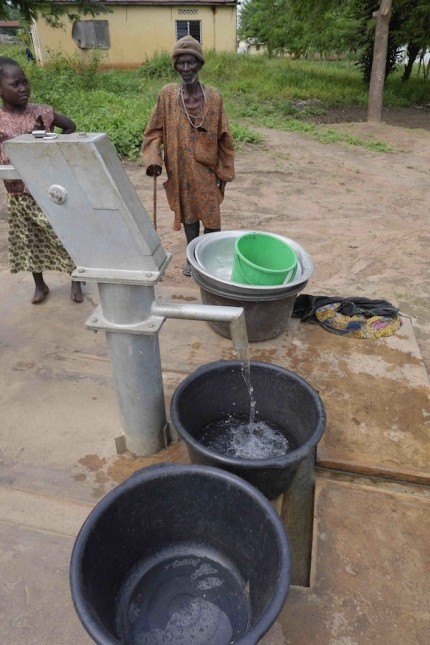
Today, the Togolese village called Kpategan is fortunate enough to have a medical clinic in their village, as well as a deep-capped water well drilled directly in front of the clinic.

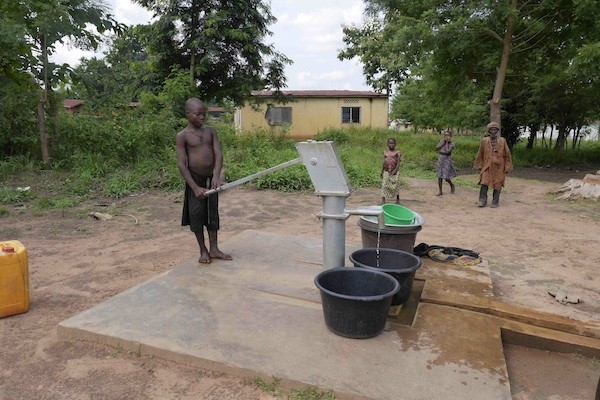
But…this wasn’t always the case.
If a woman came to deliver a baby in the night, the local midwife and staff would go to the houses around the clinic to see if anyone had some water for them to use. Before the well was provided, there was no source of clean water in the area and since the people fetched their water from a dirty swamp, the clinic had no choice but to use the dirty water.
It’s hard to conceive that a clinic would treat people with parasite-ridden water! Instead of getting healthy, people would actually get sick with stomach ailments while at the clinic.
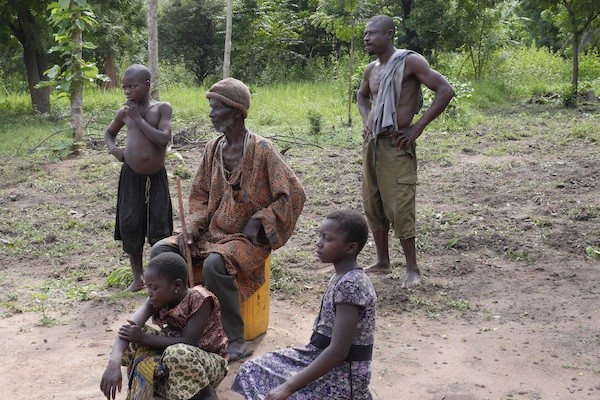
The well was a major relief and a huge blessing to the staff at the clinic. Both the clinic supervisor and the midwife were so delighted to have a water well in close proximity.
Each month, 150 villagers (from seven nearby villages) used to come and get treatment and care. But, as a result of the well, the staff noticed a big decrease in the number of visits to the clinic; especially since villagers no longer suffered from parasites and diarrhea.
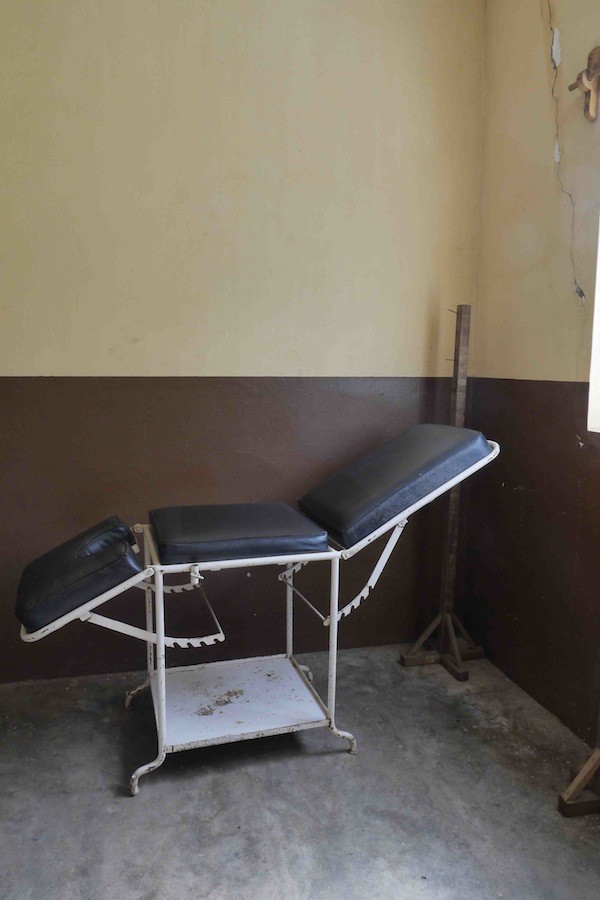
It was especially noticeable that the number of young children with diarrhea had almost been eliminated by the provision of clean water.
One water well has had a major impact on the health of a Kpategan!
WOULD YOU LIKE TO HELP BREAK THE CYCLE OF DISEASE AND SICKNESS FOR MORE VILLAGERS?
Water is a scarce commodity in the village of Nandili in Southern Tanzania.
Before we provided a deep-capped water well in this village, the people had no option but to travel 18km to find clean and safe water.
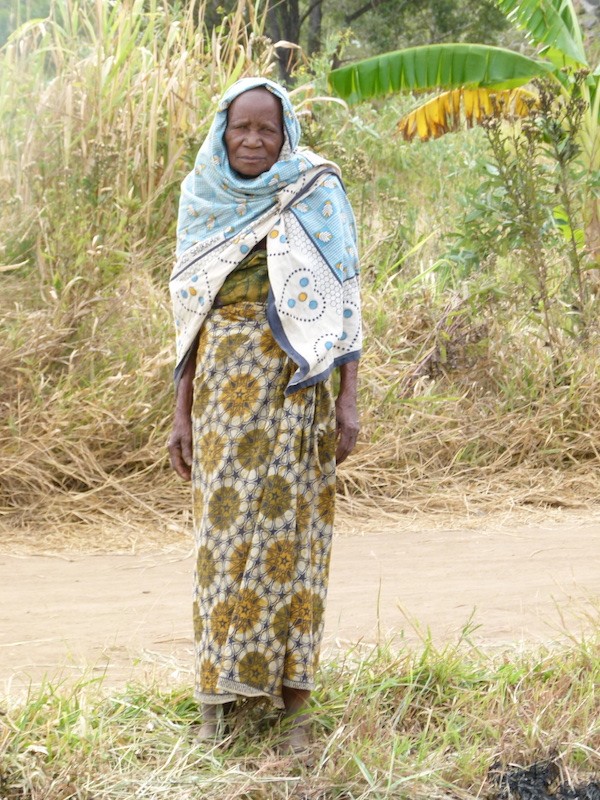
Women used to spend most of their day travelling to collect parasite-ridden water on the back of bicycles.
Fortunately, that has all changed.
Women are now able to stay home and care for their families.
Children are able to have a meal and go to school with clean uniforms. They spend less time fetching water and more time studying.
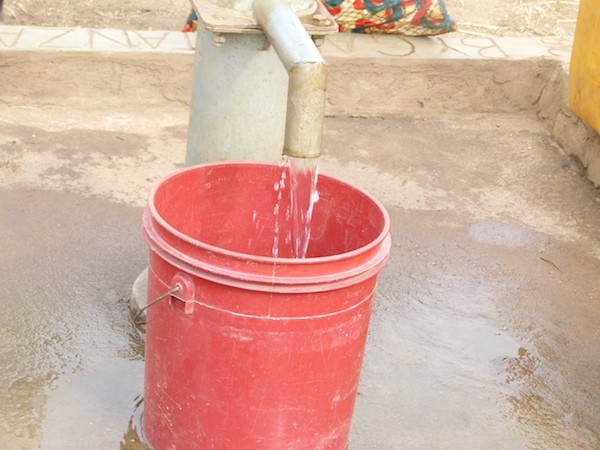
The well is located next to the primary school where the children can fill there jugs as they walk to class.
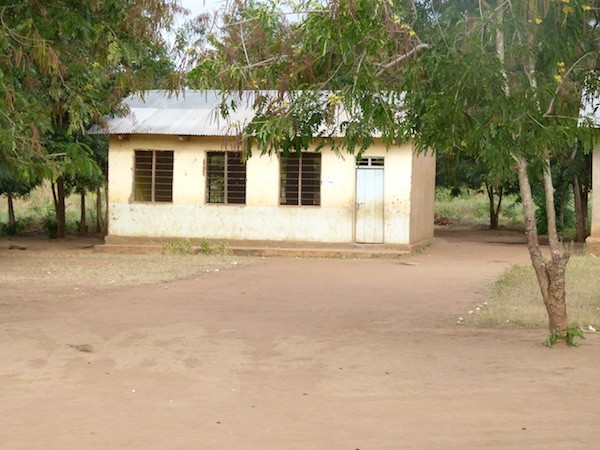
Most of the classes meet outside, which means they can’t study during the rainy season.
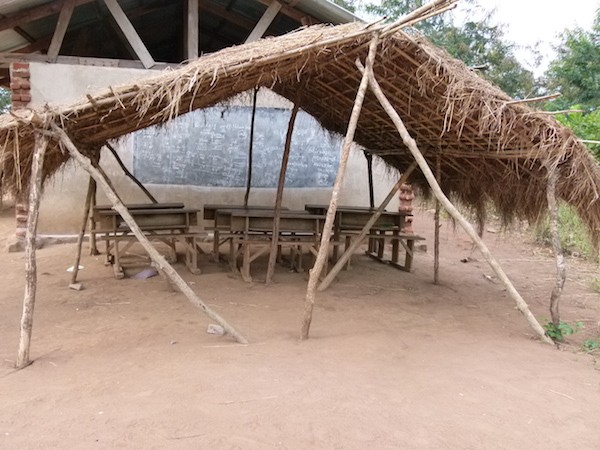
As a result, the village has plans to use the water from the new well to make bricks for new school buildings.
Nandaili’s well brought transformation to the villagers.
Both daily water use and education were radically impacted. Both worked hand-in-hand in providing freedom, safety and hope.
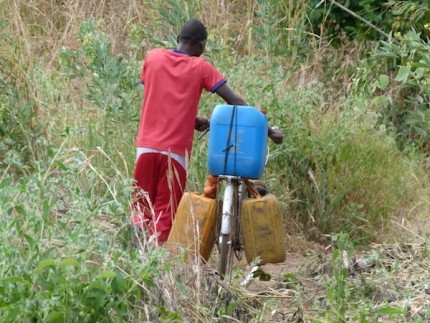
The farming village of Kimawe in Southern Tanzania is surrounded by hills.
As the country enters its dry season, there is an especially great need for clean and safe water in this area.
Villagers travel up to three hours to find water, crossing farmland and over hills for a single bucket of water that wasn’t even clean.
In a desperate attempt to get water, the village gathered the young people and tried to dig to find water. They tried many times but did not succeed.
When GAiN’s Water for Life Initiative came to Kimawe and provided a deep-capped water well in the center of their village, it gave them much more than just clean water.
It gave them more time to spend with their families, to farm and to get an education.
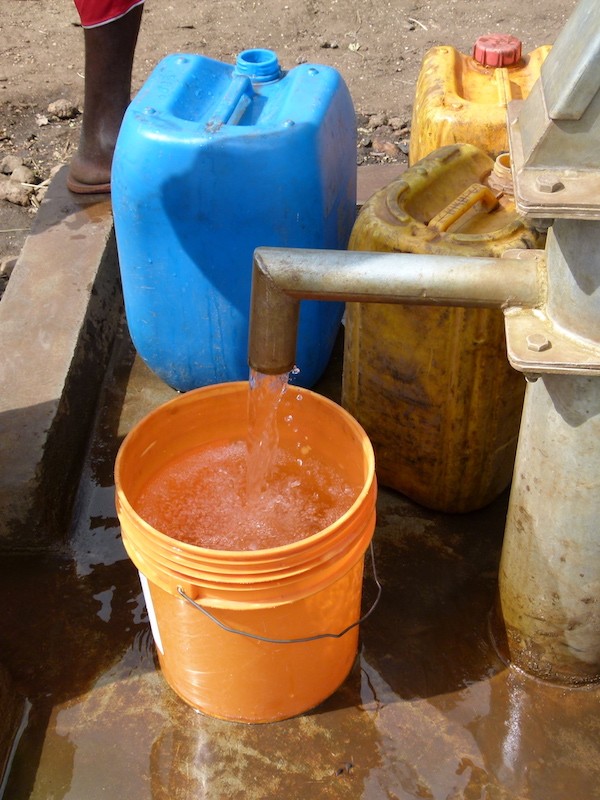
The families of this village benefited greatly from the well because the women were now able to stay home and care for their families and provide meals for their children.
They were grateful for the gift of clean water and AMAZED that the people in Canada would think of them in Southern Tanzania.
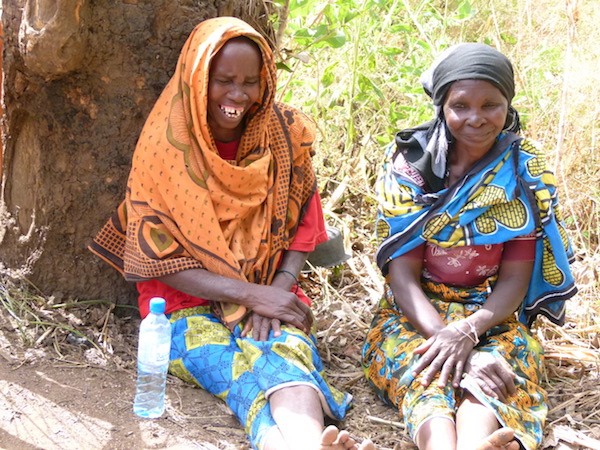
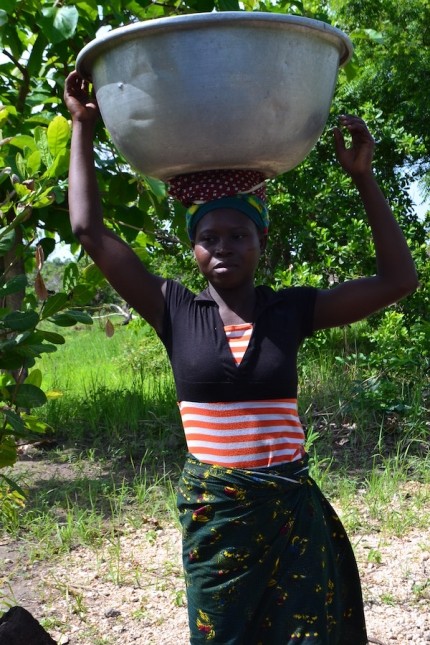
When we visited the village of Adjaha Vodjein, Benin, the team was greeted by Pastor Ansel who hopped off his motorcycle and embraced us with a big hug.
Our Water for Life Initiative had partnered with him and the JESUS Film Church Planting Strategy (JFCPS).
He was excited to see us and expressed how he had seen our strategy work.
“The need for water is really big and it has been a great tool for us to [share God’s love] in this area,” said Pastor Ansel. “The water is really giving true life to every person.”
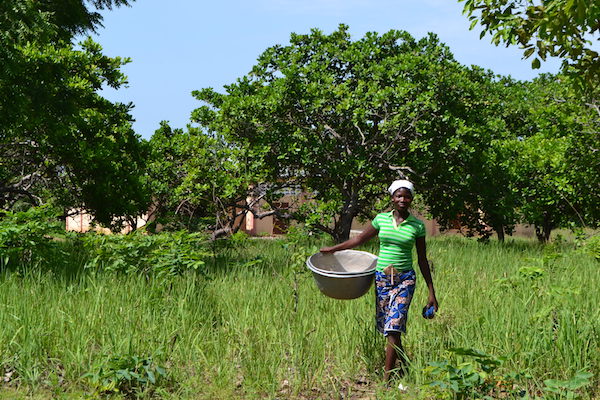
Before the water well, Pastor Ansel told us that they had to spend the entire night just to get a bucket of water, especially during the dry season.
“The presence of the water well in the village has eliminated the fatigue of people and the difficulties that we had to face in the past. I lack words to describe what it means to us! People would sometimes buy water from the city, even as far as Cotonou [a five hour drive] to bring it here. But when they discovered there was a well, they were relieved because they can now depend on it.”
The Pastor also had a vision to further partner with GAiN and reach other communities that are in need of a water well.
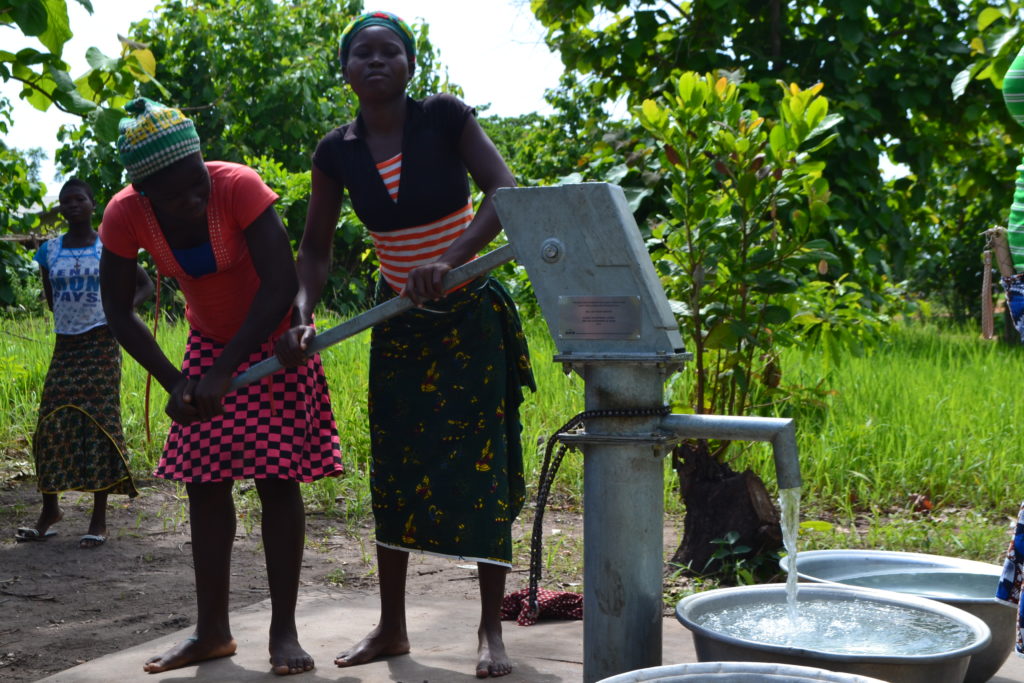
“This really supports us in our work in the village. It has given our church credibility among the villagers. People now understand that the church is an important part in the community.”
Through GAiN’s partner – the JESUS Film Church Planting Strategy (JFCPS) – those who are looking for answers are now finding them in the church.
The JFCPS team has shown the JESUS Film and many asked the pastor to call the JFCPS team back to show the film again.
“We know that there are lots of obstacles and [it is] difficult to share God’s love…But, we have faith that as people drink the clean water, they will not only experience less disease but also hear about the Living Water.”
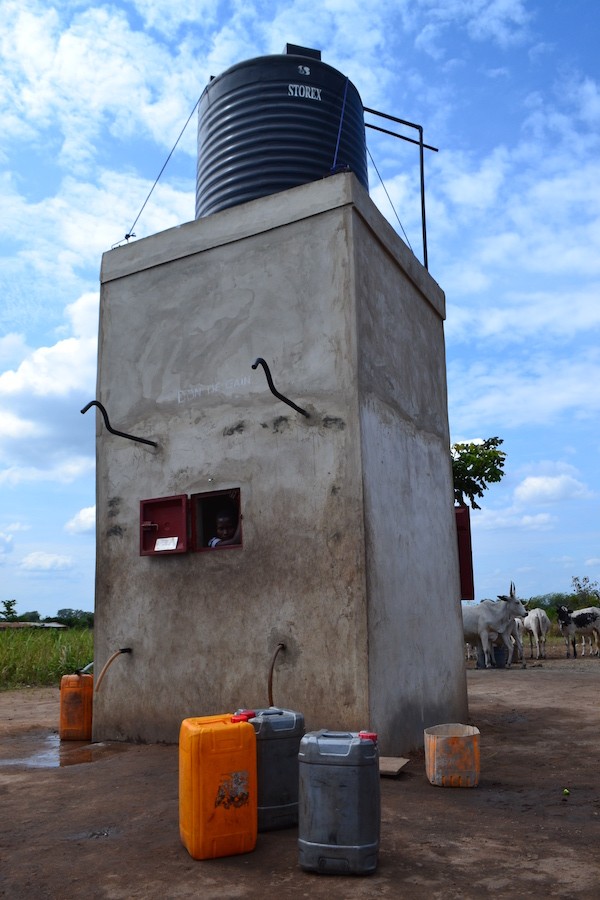
When we arrived to the village of Achechigon, Benin, we were surprised not to see a traditional hand pump in the village. Instead, we saw this imposing concrete structure with a window on its side, two spouts coming out at the top front and two taps at the bottom.
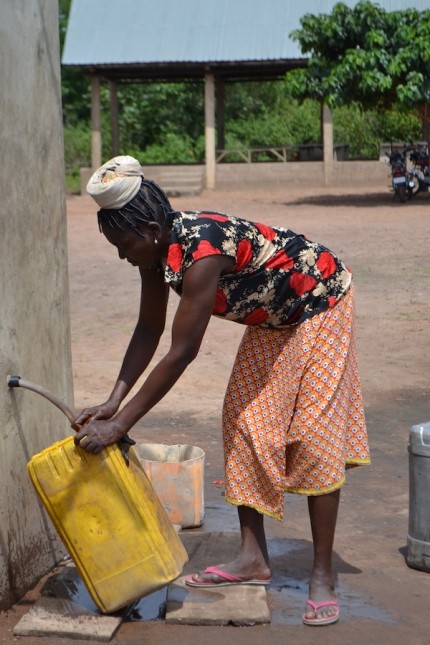
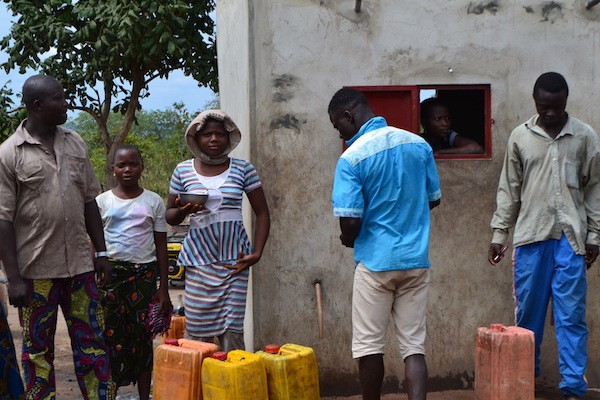
There were a handful of people lining up and getting ready to collect water from the building.
When we had arrived, they were just about to divert one of the taps to fill some drums for a herd of cattle to drink water.
When we provided the well, the community at Achechigon wanted more than just a hand pump, they wanted something that would ease off the burden of fetching water. They were inspired and envisioned a water tower for the village, as it would be the easiest way to get clean and fresh drinking water for everyone.
The community started to research and gather information on the best available technology for a water tower. Little by little, they started to purchase each component necessary to build the tower. They recruited some locals to construct it, including one of the villagers who was a local mason. Together, the community brought their best skills forward to build a tower.
Not only did the community work together to build it, they also pulled together the finances – 2 million CFAs (over $4,000 CAD) – in order to make the building project a reality. There were more than 1,000 people living in the village and the demand for clean water was massive. They understood the need for clean water and were happy to pay for it, knowing that the money would go toward maintaining the water system. This includes putting money toward diesel or parts to repair the generator.
The community sells water for 25 CFA ($0.05 CAD) per jerry can. Part of the monthly revenue goes toward employing an attendant who ensures that people pay for the water they receive. The current balance, after four months, is about 120,000 CFA ($263 CAD) in their village bank account.
Every Sunday, the committee meets to talk about management and operational issues regarding the well. The current ‘hot topic’ was the water packing issues.
A villager said, “This clean water simply transforms our lives. Every tribe in the area, including animals are just so happy that the water well is here.
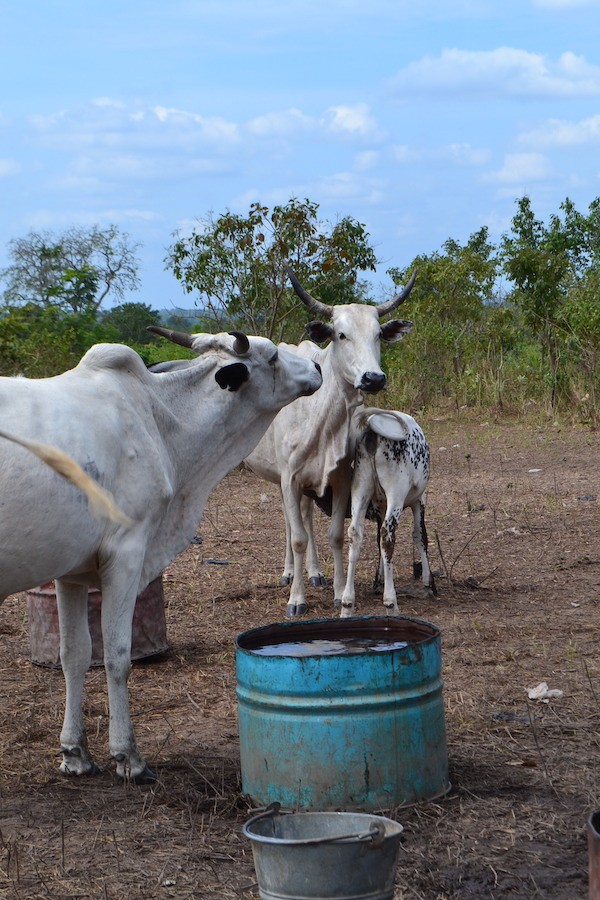
Other people are suffering and depend on us! We must keep the water tower running. I don’t want to see other people suffering.”
There used to be just one well down the road with a foot pump. Men and women used to fight frequently because of the long wait time.
“We like to take this preciously,” said one of the villagers, after noticing the benefits of the well would be easier and faster access to water, which would promote peace in the household.
The difficulty of not finding clean water to drink had forced many to leave their homes and move to other places to settle. The culture in Achechigon is not nomadic, so one could imagine how difficult it must have been to move. With the water well in place and functioning in the village, families no longer had to make this choice. In fact, village life was being invigorated as more people were choosing to settle in Achechigon.
Every person our team talked to showed great appreciation and thankfulness for the well.
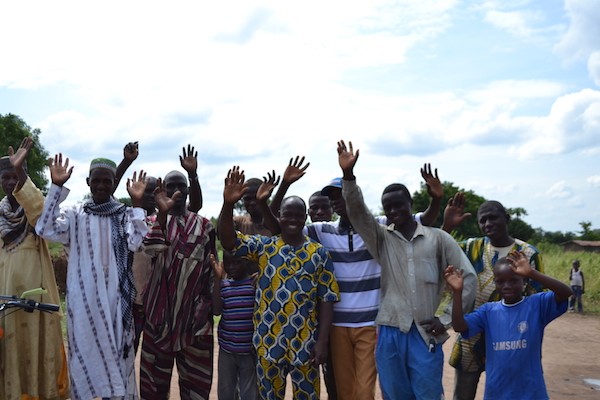
Today, their desire is to see this project replicated in different parts of the village and different parts of the district. This is a great example of how villagers view the water well as more than just a water point — it’s aspirational. Villagers are inspired and motivated to find the best solutions on their own. They all have a sense of duty to ensure that the well is working so others can also enjoy clean water.
The tower was designed with the users and management in mind, to improve the convenience of fetching water. Having the reliable water source is a great indicator that sustainable water service will continue in the village.
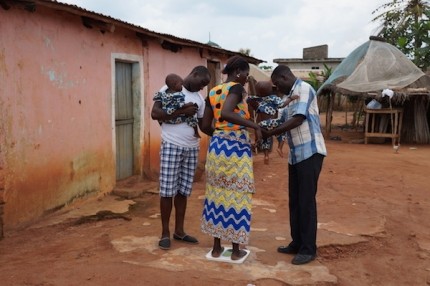
We are partnering with Global Affairs Canada to reduce the mortality rate of women and children, improve access to clean water, provide training in healthy practices and gender sensitivity, and increase absorption and consumption of nutritious foods by mothers, pregnant women, newborns and children under the age of five in Benin and Togo.
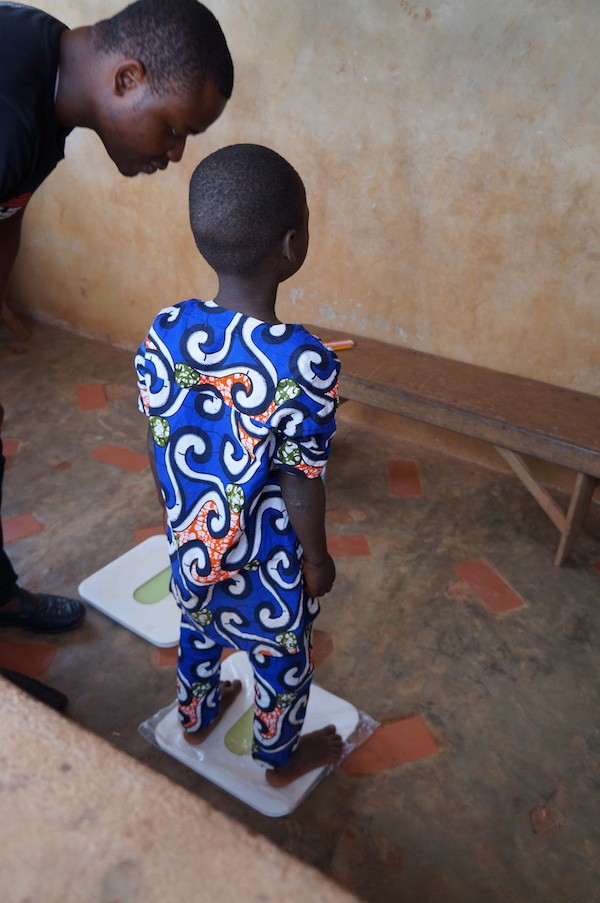
On Wednesday, March 30, 2016, both Global Affairs Canada and our team officially signed the contribution agreement for $3.6 million. Total value of this four-year project is $4.2 million, with Global Affairs Canada contributing 85% of the funds, and the remaining 15% will be funded through the public and our constituents.
The $4.2 million will go toward our Water for Life Initiative (WFLI) and will be used to continue and expand the well drilling and community development work that WFLI is doing in rural areas in Benin and Togo. As well, this partnership will help build and sustain the Maternal, Newborn and Child Health (MNCH) through the delivery of multiple, complementary health interventions.
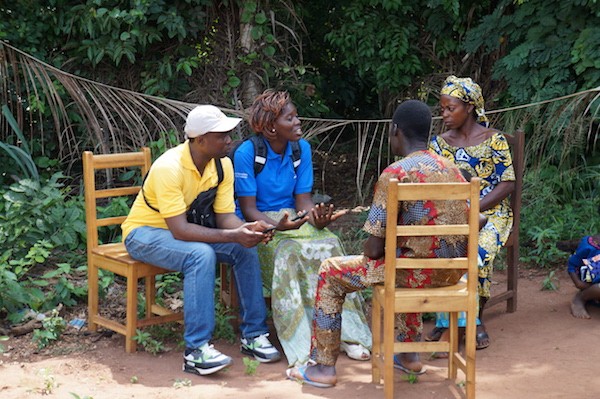
“Women and girls around the world face particular challenges, including access to sexual and reproductive health services. With Canada’s support to the work done by GAiN Canada, we continue to address many of those challenges, by helping to improve the health of women and children in rural areas of Benin and Togo.”- Marie-Claude Bibeau, Minister of International Development and La Francophonie
With $600,000 to raise, we will look to our faithful donors as well as share this opportunity with new potential donors who align themselves with this project and who want to help contribute to strengthening health systems, reducing disease and improving nutrition.
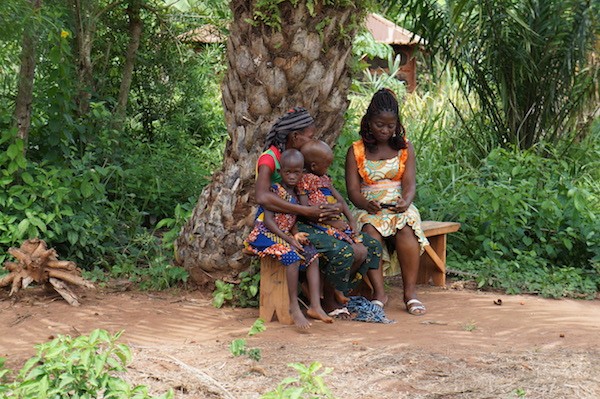
“We are excited about the partnership with Global Affairs Canada. This project builds upon the success of the Water for Life Initiative to further maximize impact on mothers and children to regain the health they deserve,” shares Tim Lee, the Associate Director for GAiN’s Water for Life Initiative.
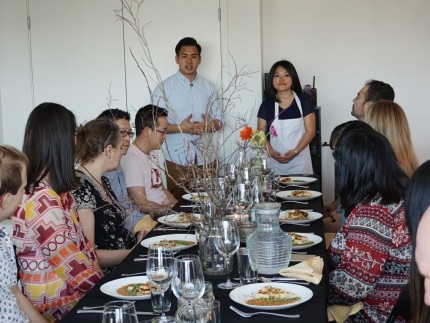
Food nourishes, satiates and brings people together. It did all that and more on April 9 and 10, when hobby chefs Tim Lee and Elaine Cheng hosted a dinner fundraiser in Vancouver, B.C., as part of DinnerPartyYVR and Social Bites, which had guests leaving with more than just full stomachs.
Lee, the Associate Director of GAiN’s Water for Life Initiative (WFLI), and Cheng, founder of Food Connections, partnered together to host “Water: A Journey of Restoration, Dignity & Life,” which spanned over two nights and sold out.
A story telling the harsh reality of the water crisis was weaved into each course, creating an experience for each guest and raising awareness about the ever-present issue. This visual and sensory way of raising awareness really emphasized the reality of a lack of clean water in some developing countries.
“People will remember this night, which is great because then it’s not just an event that they go to, but it’s an experience,” shares Lee.
Lee and Cheng deliberately put together a menu with an opposite flavour progression than usual menus. They started out with more pungent and strong flavours and ended with cleaner and simpler flavours near the end. “This is just to emulate going from thirstiness to thirst quenching,” explains Lee.
The menu was as follows:
1st course: The Water Crisis
Ricotta Gnocchi with crispy pangritata, chives and spiced hazelnut dust
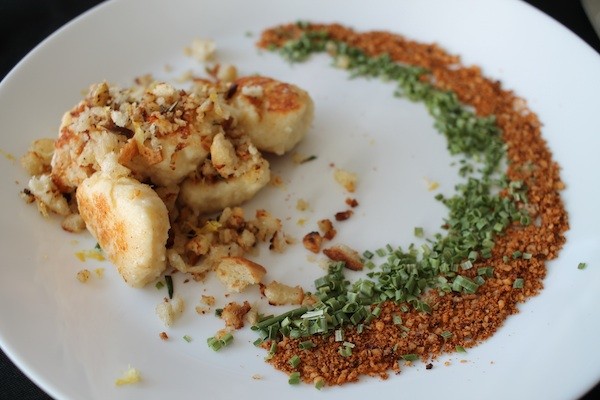
Over 650 million people in the world do not have access to clean water and over 1 billion people do not have proper sanitation facilities. The first dish was served with these statistics and depicted the absence of water for many people in developing countries.
“[The first course] looks very dry, like a pile of dirt or rocks. The flavour is fairly robust; it’s meant to be a little dry, so people need to have a drink of water to emulate the thirstiness,” explains Lee. “The gnocchi, they look like little jerry cans; they look dirty.”
2nd course: The Water Tragedy
Seafood Trio, snapper, nori, bonito with kombu dashi broth
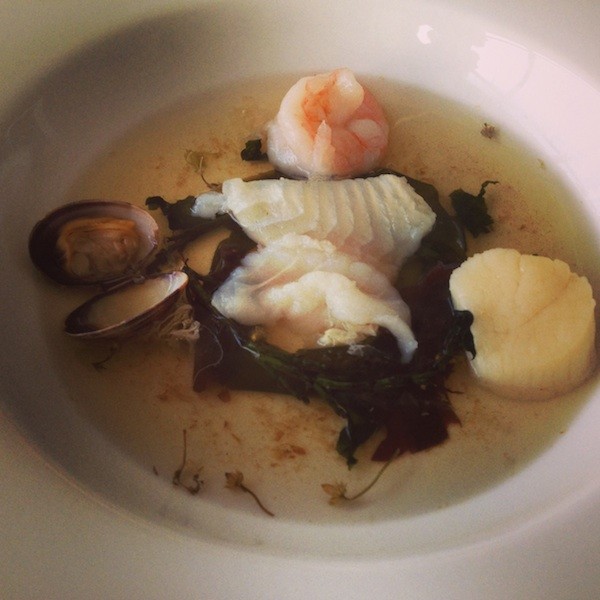
The second course highlighted the sad reality that many people in developing countries walk long distances and return home with dirty, contaminated water. The kombu broth was poured tableside so that guests could witness the kelp wreath rise to the top, representing polluted water.
“It’s a seafood trio and it’s presented with camomile flower underneath. It really talks about the tragedy and the flower and seafood represents the nuggets of beauty that is floating out in the midst of tragedy. [It symbolizes that] the people are resilient. They are vibrant and make it work, but they are still struggling at the same time.”
3rd course: The Water Opportunity
Pork Two ways, vegetable terrine, lavender, potato mousseline sauce
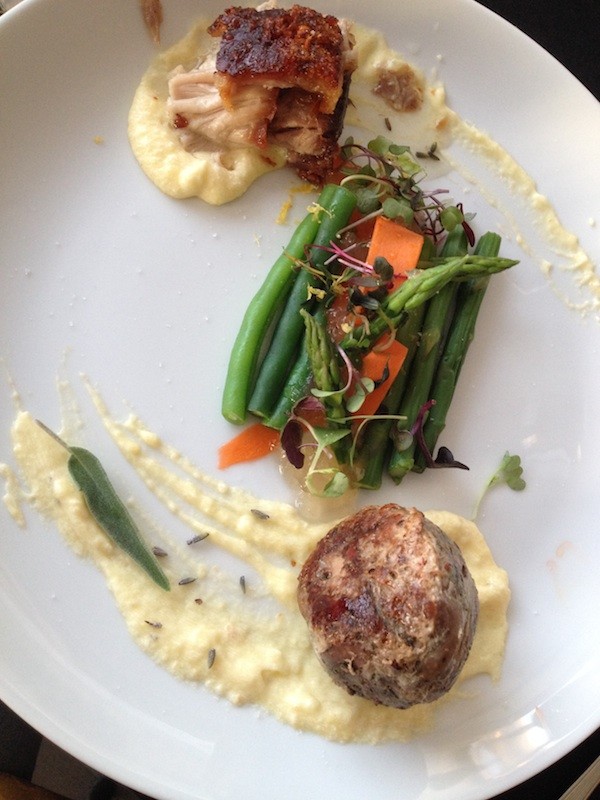
The third dish represented the multiple benefits of clean, accessible water. The two ways shows that water not only solves a multitude of health issues, it also makes an economic difference, as well as impacts gender and security issues in these rural villages.
“There’s a garden salad in the middle, made of asparagus and green beans and gelee in the middle. It’s cold and simulates a river. There’s some herbs on top to give the imagery of spring, where there’s opportunity budding out. Water comes with opportunities. The sauce is a potato mousseline sauce. [We used] potatoes because potatoes are from the ground and it represents that water is from the ground up.” The lavender in the mousseline represents beauty in the spring.
4th course: Sweet Water
Poached Pear, strawberry riesling gel, elderflower foam
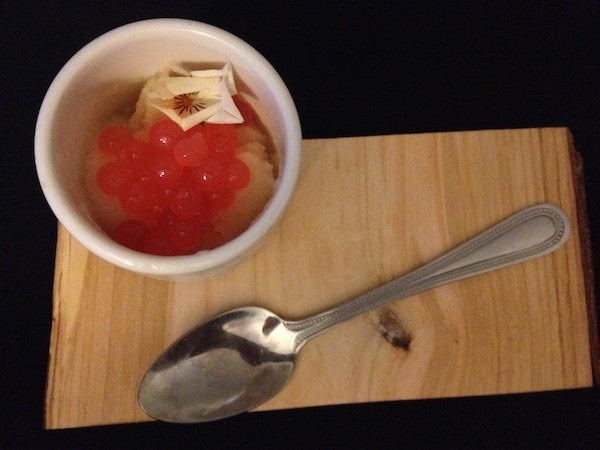
“The whole flavour of the sorbet is supposed to be a refreshing, light, delicate way to finish the meal.”
Referring to water as sweet may seem weird but it is an acceptable adjective for those who are used to consuming muddy, contaminated water. Pure and clean water is not only refreshing, but sweet in so many ways.
The first night was opened to the public and brought out a variety of people. Some guests were looking to meet fellow foodies, some were mostly interested in the menu and what was being served, and others came out because they were passionate about the water issue. The second night’s attendees were friends of Lee and Cheng so the atmosphere was more relaxed.
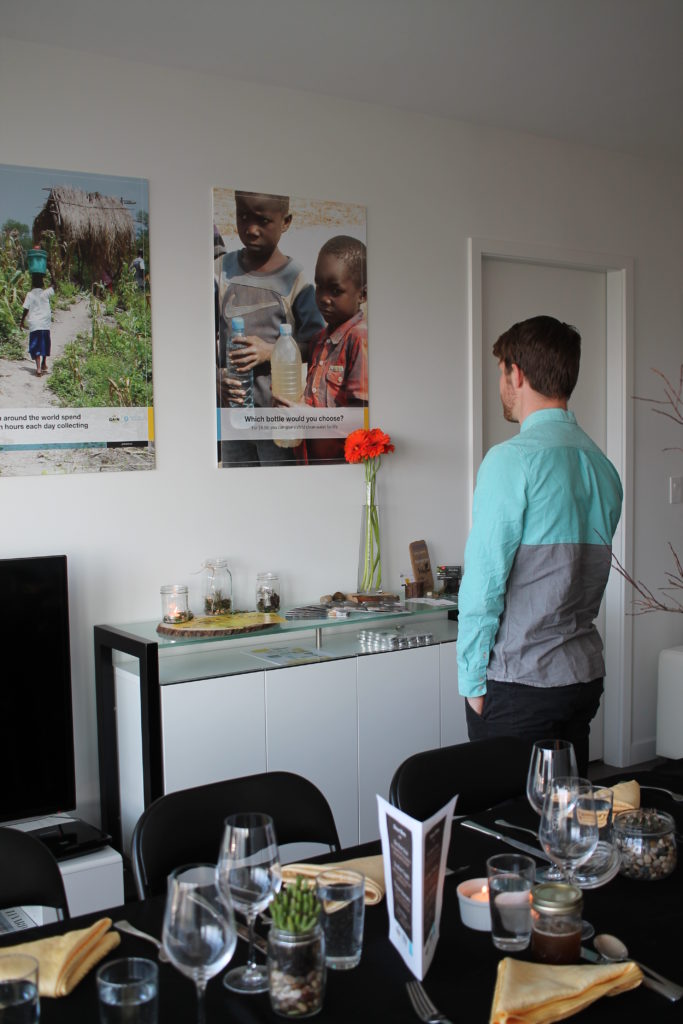
Overall the dinner was a success and Lee is looking for future opportunities to host another fundraiser like this one.
“I tend to think food has a way of breaking down barriers and we can actually talk about life and issues in general. This kind of combines the two things that are quite powerful: water and food together.”
Note: To learn more about the inspiration behind why Cheng, founder of Food Connections, partnered with GAiN and did this dinner, click here.
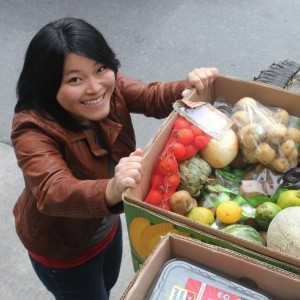
Not many people can say that they have fed 5,000 people, for free, in the course of one-and-a-half hours. But Elaine Cheng can. The best (and worst) part? The meals were prepared using only food that would have otherwise ended up at the landfill.
This year, as a part of DinnerPartyYVR, Elaine and her partner chef, Tim Lee, will be making dinner for a much smaller crowd, but going for the same impact. The pair are cooking for Global Aid Network, where Tim is the associate director of the Water for Life Initiative. “Water projects really resonate with me,” says Elaine, who recalls visiting villages in Guatemala where water was scarce.
Read the full article.
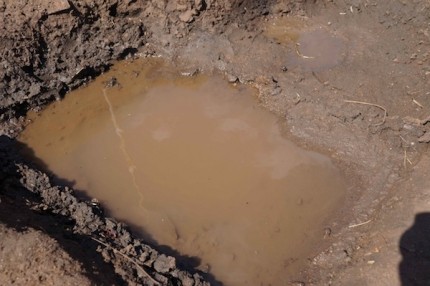
Imagine if the only way you could access water was to dig holes in a swamp and wait all night for water to seep in? This was the reality of women in the village of Mwandila, Tanzania.
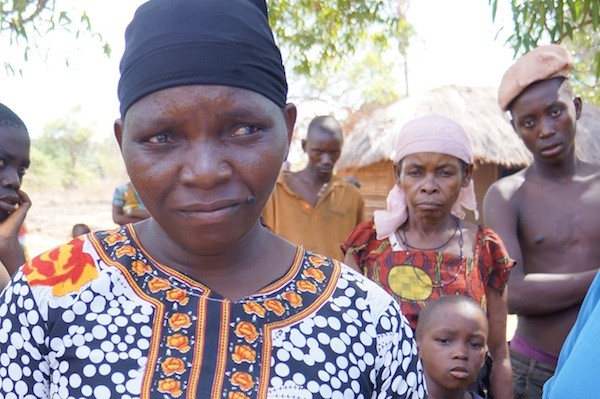
Waiting to fill a bucket of water often required sleeping by the hole all night long so that they would have something to bring home the next morning.
Sleeping in the swamp was very cold and uncomfortable, not to mention dangerous.
You can imagine the joy these women felt once a well was drilled in the village.
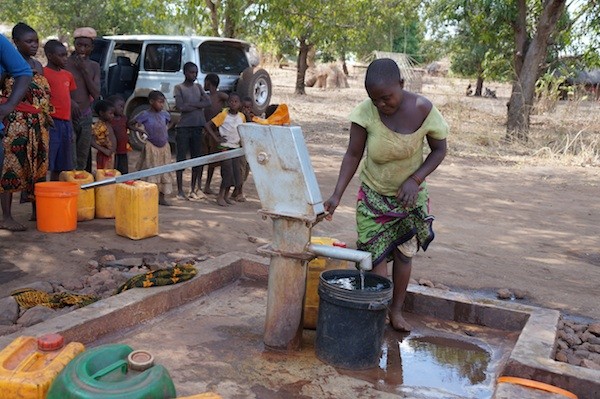
Not only did they have access to clean water instead of muddied water, they no longer had to endure harsh conditions in order to get it.
Today, the well is providing more than just disease-free water to the village, it is also creating opportunities to further wellness in the community. Mwandila now has plans to build a clinic with the excess funds from the sale of water.
WOULD YOU LIKE TO HELP OTHER WOMEN IN VILLAGES JUST LIKE MWANDILA?
THIS TUESDAY (MARCH 22) IS WORLD WATER DAY.
WILL YOU PARTICIPATE IN THIS DAY BY PARTNERING WITH US TO PROVIDE CLEAN WATER, SAFETY, NEW OPPORTUNITIES AND A BASIC HUMAN RIGHT FOR MORE WOMEN?
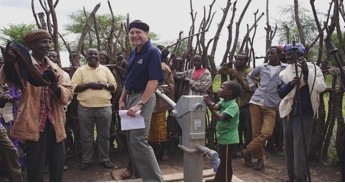
In November 2015, our GAiN Water for Life Initiative Team visited Ethiopia and brought back good news from a poor, remote village in the dry region of Southern Ethiopia – Ame Serba.
A newly-drilled deep-capped well had been finished and the team was there for the dedication.
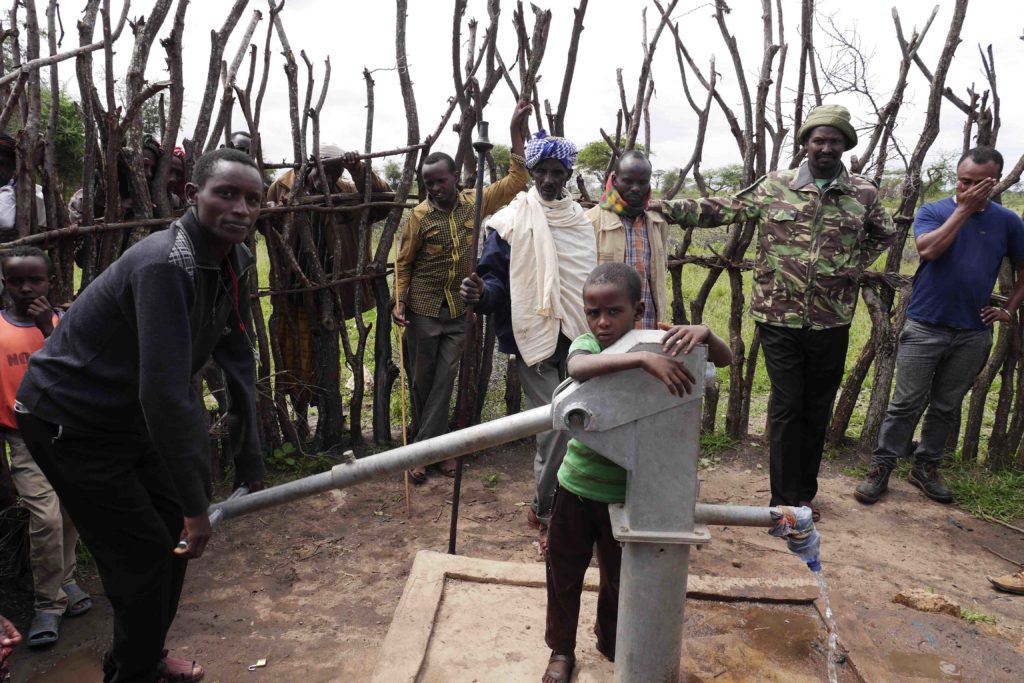
Almost the whole village of goat and cattle herders turned out, dressed in their ceremonial dress to welcome the team and celebrate the new well. Old men came with tall carved sticks–the privilege of village elders, and the women came with festive trinkets in colorful dresses ornamented with gourds.
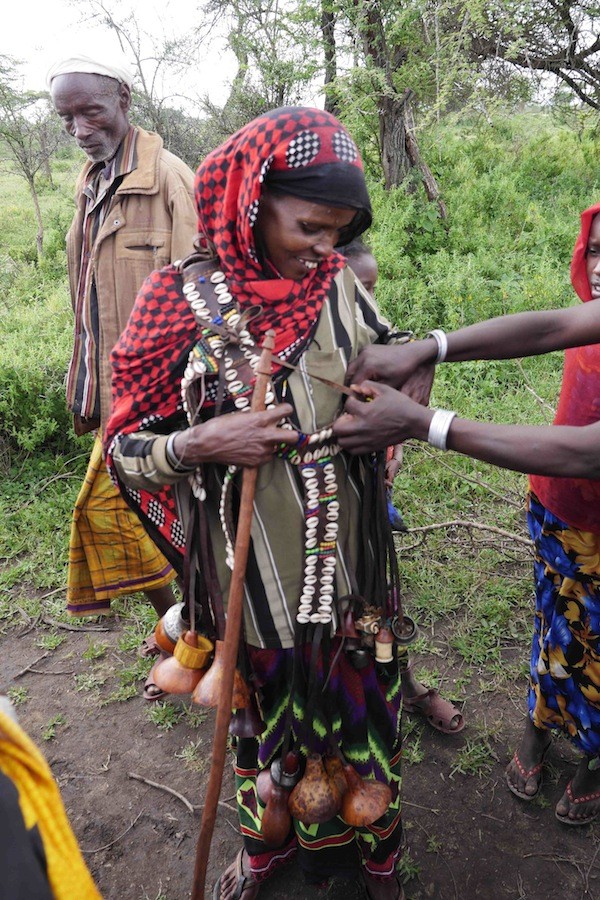
The village elders ceremoniously bestowed Borana turban headdresses on the GAiN staff to welcome them to the village.
The villagers were so overwhelmingly appreciative of the well!
It had changed their lives as a tribe and reduced the premature death of livestock due to water shortage. Women and young girls were unquestionably tasked with fetching water, and it was not uncommon to see girls 10 or 12 years old with large jerry cans strapped to their backs that they carried for long distances. Having the well close by was now saving women and girls precious hours every day. Today, they now use these hours to do more productive work on the farm and in their households, as well as go to school.
Through the partnership with the JESUS Film Church Planting Strategy team, the JESUS Film had also been shown in this village and a new church had been planted. After the dedication, the GAiN team met the new church congregation, which included the leader of the village and many other villagers.
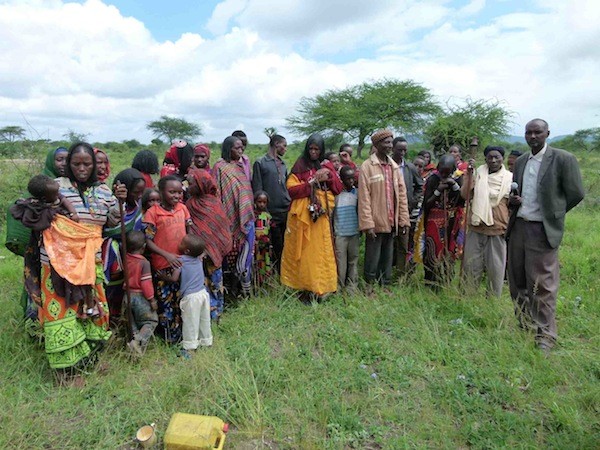
It was so moving for the teams to see, with their own eyes, all those who had been impacted from this partnership and that God’s love had been demonstrated, both in word and deed.
